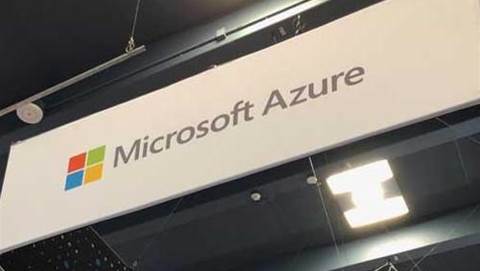Internet
• The9 Ltd. announced the signing of a deal with online game developer HanbitSoft for an exclusive license to operate an action role-playing game (RPG), ‘Hellgate: London’, in the China mainland. Under the agreement, The9 will pay a total of $35 million in license fees as well as guaranteed royalties equal to 30 percent of income from the sale of prepaid game cards. The term of the license is three years from the commercial launch of the game. ‘Hellgate: London’ is classified as an action 3D game which combines the features of both MMORPG and first-person shooting (FPS) games.
• China’s B2C (business-to-consumer) e-commerce market value was placed at Rmb854 million ($106.4 million) in the first quarter of 2006, a figure that represents 12.7-percent increase quarter on quarter, but still lower than the 19.9-percent growth rate posted in the fourth quarter of 2005, according to Analysys International. The report indicated that the number of B2C users in China hit 68.5 million in the first quarter of 2006.
Mobile/Wireless
• Datang Mobile announced that for its second round of private equity fundraising it has secured an investment valued at $25 million from a consortium of three foreign private investors. The consortium is composed of Korea Development Bank's private equity arm, Korean venture capitalist STIC Investments and SeaBright China Special Opportunities, a fund co-owned by US Seagate Global Advisors and China Everbright. The investment is by way of subscription to Datang Mobile’s convertible bonds. This marks the first time that Datang Mobile has gotten the attention of pure financial investors and is seen as a vote of confidence for the country’s homegrown 3G technology. The company said it will use the fund to promote the TD-SCDMA standard overseas as an international 3G standard. The company said it is preparing for an eventual listing either in Hong Kong or on the NASDAQ Stock Market in 2008.
Software
• China is looking to its software exports posting a 30-percent growth to reach $12.5 billion by 2010, according to the country’s Ministry of Information Industry (MII). The report says that by that time, China will have some 2.5 million people employed in the software industry. A key MII official said that the government has already drafted a policy to promote the development of the software integrated circuit industries. China’s software industry was estimated at $48.7 billion in 2000, compared with $5.5 billion in 2005. At the end of last year, China had more than 13 thousand software companies registered.
Hardware
• High-end TV equipment maker, Shenzhen Coship Electronics, announced its plans to list on China’s stock market, a move that makes it the second company to do so since after the year-long ban on IPOs was lifted in May. The company’s announcement follows China CAMC Engineering’s announcement saying that it would float Rmb60 million ($7.4 million) denominated shares on the Shenzhen Stock Exchange. Shenzhen Coship said that it plans to issue Rmb22 million ($2.7 million) denominated A-shares on the Shenzhen Stock Exchange. The company said in a statement that as many as 17.6 million of the shares, or 80 percent, will be available to retail investors with the remaining 4.4 million for private placement. King & Wood, a private partnership law firm in China, serves as the legal advisor of Shenzhen Coship Electronics for the share sale.
• China BAK Battery, a Lithium-Ion (Li-Ion) battery cell maker, announced that it has received approval to list its common stock on the NASDAQ National Market. China BAK Battery is a commercial manufacturer of standard and customized Li-ion rechargeable battery cells for use in cellular phones, MP3 players, laptop computers, Bluetooth headsets, power tools, and other general industrial applications. The company earlier saw the expansion of the company’s 1.9 million-sq ft manufacturing operation in Shenzhen, Guangdong province, enabling it to produce new proprietary products.
• Dell, a PC maker, announced the completion of its second factory in Xiamen, in east China's Fujian Province. The company said the new factory with its capacity to produce 7 million computers annually will enable it to double it annual production capacity in China. Dell said the factories together in Xiamen will give about 8 to 10 percent of its global production capacity. The company disclosed that it posted for the last quarter a 40-percent increase compared with figures a year ago. It posted also a 29-percent rise in its sales revenue. The first factory manufactures PCs intended for the China market, while the new factory is aimed at producing for the markets in Japan, Hong Kong and South Korea.
• A Haier spokesperson disclosed that the company is planning to acquire Trigem, a South Korean computer manufacturer. Trigem is the No. 3 biggest computer maker in South Korea, with its sales volume following those of Samsung and LG. Haier earlier said it was interested in buying Hyunju, another South Korean computer maker, with some sources claiming that the negotiation with Haeir is still active. Haier is the world’s 4th largest whitegoods manufacturer and one of China’s Top 100 electronics and IT companies. It has 240 subsidiary companies and 30 design centers, plants and trade companies.


_(23).jpg&h=140&w=231&c=1&s=0)

_(33).jpg&h=140&w=231&c=1&s=0)
_(28).jpg&h=140&w=231&c=1&s=0)





 iTnews Executive Retreat - Security Leaders Edition
iTnews Executive Retreat - Security Leaders Edition
 iTnews Benchmark Awards 2026
iTnews Benchmark Awards 2026
 iTnews Cloud Covered Breakfast Summit
iTnews Cloud Covered Breakfast Summit
 The 2026 iAwards
The 2026 iAwards












_(1).jpg&h=140&w=231&c=1&s=0)



